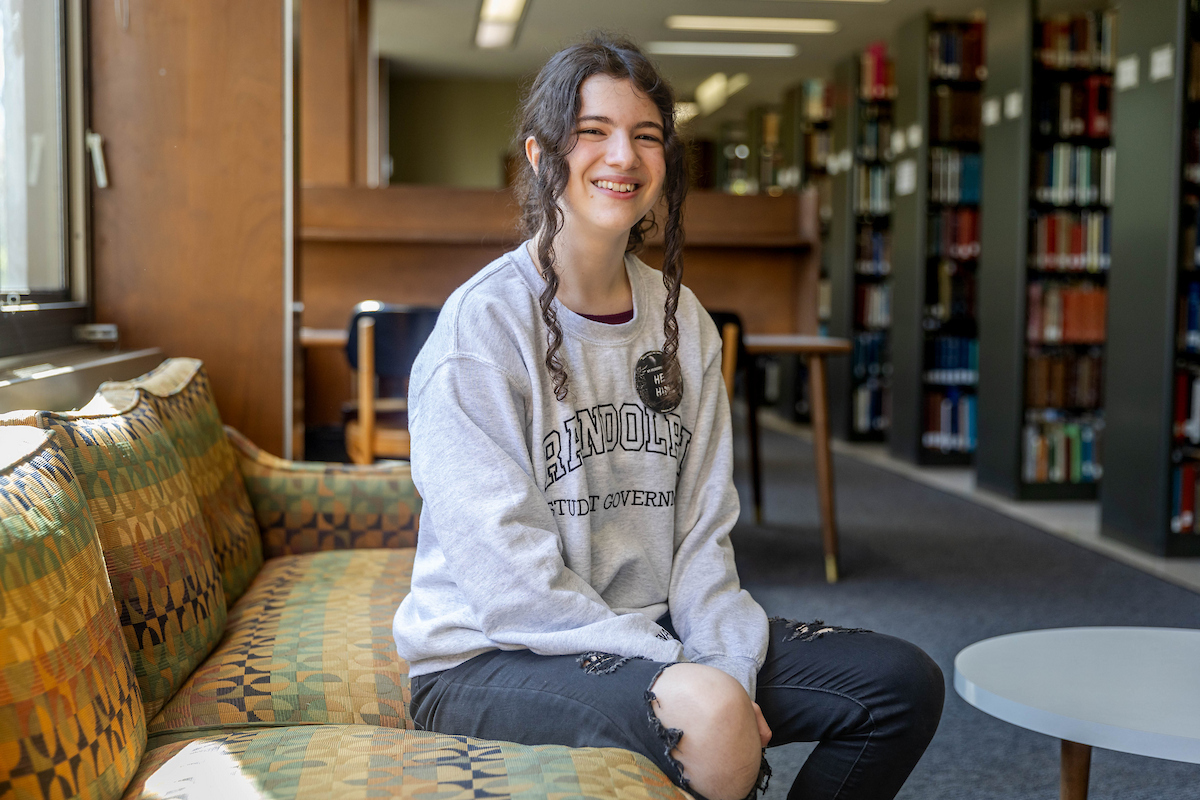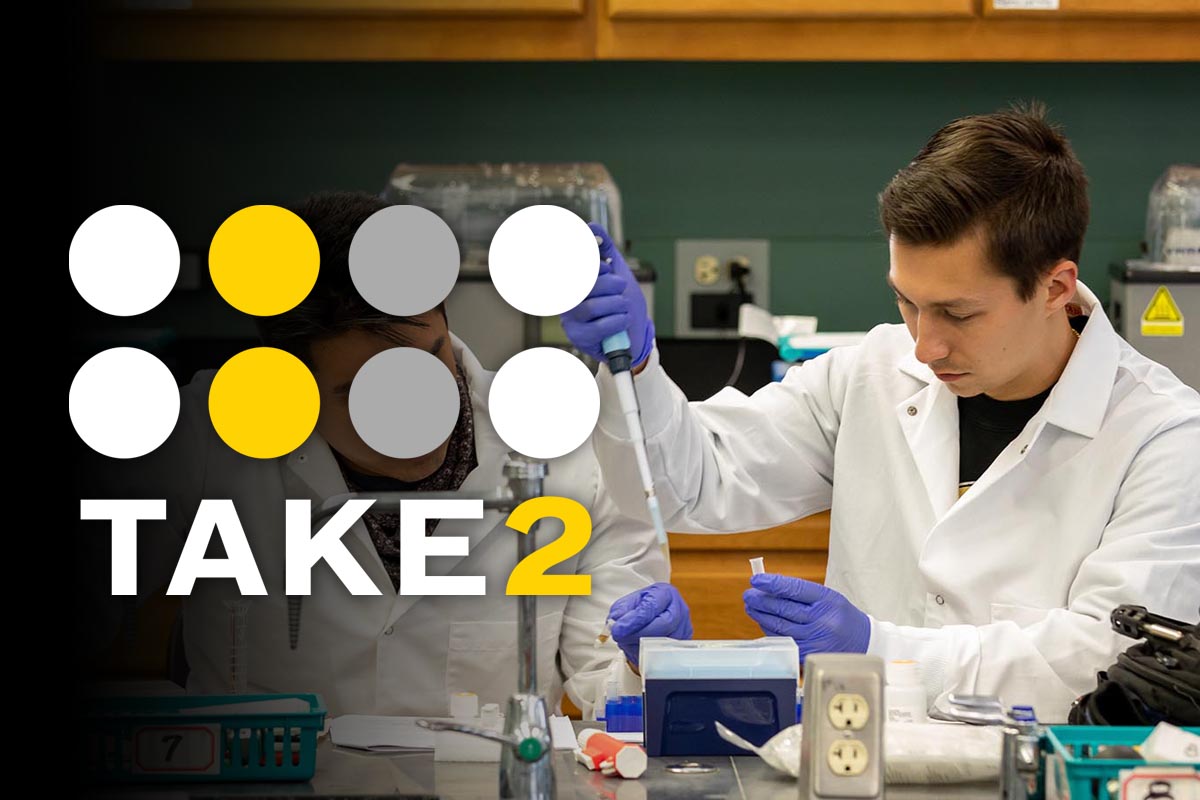First-generation student Q&A: Jesse Fry ’27
First-Generation College Celebration Day is recognized every year on Nov. 8. This year, Randolph is celebrating first-gen students all week long and held an induction ceremony for Tri-Alpha, which celebrates the academic accomplishments of first-generation college students, on Wednesday, Nov. 5.
We are also profiling some of Randolph’s first-generation students.
Jesse Fry ’27
Hometown: Charlotte, NC
What are you studying: Majoring in sociology, with a minor in social justice and activism
What does it mean to you to be a first-generation student?
As a first-gen student, I’m trying to be a good role model for my younger sibling, not just through entering our family into higher education, but through proving we can walk into the unknown and come out successful.
What or who inspired you to pursue higher education?
It was always presented as a given that I would go to college since I was always a high-achieving student who enjoyed academics and came from a middle-class background. It had been a passive goal of mine that I looked forward to since I found out colleges and universities existed. Even after we dropped below the poverty line, it was anticipated that we would still find some way to get me to school; it was what I had been preparing for this entire time, and it very much felt inevitable.
What challenges have you faced as a first-gen student, and how did you overcome them?
A lot of it was just not knowing. I didn’t know who to go to in the beginning or what questions I needed to ask because I didn’t have any foundation to build off of. Over time, however, I got more comfortable with staff, faculty, and students, and I started to ask more questions or open conversations relating to college or grad school or campus life. Randolph gave me a really solid foundation to get my footing, and I was able to take it from there with the help of my community.
How has being first-gen shaped your perspective?
That’s a really hard question to answer because I don’t exactly know what it’s like to not be a first-gen student. I suppose I carry an excess of uncertainty or anxiety surrounding college: Am I taking a good pathway? Should I do more extracurriculars? Am I biting off more than I can chew? Am I doing any of this right?
But as time has progressed and I’ve gotten a better understanding of myself and my goals, my path has become a lot clearer. There are some times where the imposter syndrome creeps back in from the corners of my mind, but I’ve gotten better at reminding myself that I have just as much right to be here as all of my (awesome) friends, and I have worked too hard to discredit that.
How did you become interested in your major/field of study?
When I was in junior and senior year of high school, I participated in the middle college program offered by Central Piedmont Community College in North Carolina. Fall semester of my senior year, I took my first sociology course and instantly knew that this was going to be my major. As a queer, trans, csa survivor, I was already viewing the social world through several different perspectives. I could pick out the “common sense” narrative and compare it to my own experiences to unearth discrepancies. I was constantly adding to my mental database on what social narratives and ideologies influenced general behavioral trends in our society in an effort to reason why people acted the way they do—and then I found out that you can make that study your degree.
What advice would you give other first-gen students?
ASK QUESTIONS! Talk to everyone you can: high school counselors, prospective college advisors, financial aid offices, your academic advisor. Go to the Career Development Center and see what resources they have, and talk about prospective career pathways, even if you don’t have your heart set on any particular major yet. Google “What should I know about college as a first-gen student,” start considering if grad school is something you might be interested in, and talk about what preparing for that would look like, so you aren’t blindsided by your junior/senior year. If your school is offering a resource—be it a person, department, or academic tool—find ways to utilize it. Randolph College in particular, has faculty and staff who really want to see you succeed. They are here to help, and they want you to ask should you need it.
What is special about Randolph College?
A lot of people claim that there is some kind of “Randolph magic.” If I had to guess, I’d say the small campus and class sizes (both year and room) really help everyone humanize one another. You get to know almost every face, even if you never learn the name attached to it—which is fairly hard to do here—and you can feel the overarching sense of community. Rarely are we seen as “students.” We are viewed as individuals. Staff and faculty put effort into learning our names and making themselves available, and the hospitality is palpable. That’s not something you can often get at schools of 10,000, 20,000, or 40,000+ students, where resources and time are more scarce, even with a larger staff. Randolph, for many, truly feels like home.
How has Randolph supported you as a first-gen student?
Everyone has been so patient and helpful. My advisor and professors have put in a lot of effort to make sure we succeed as students, the individuals at the Career Development Center have provided me with so many insights and opportunities, and I have gotten ample support and guidance from everyone I’ve talked to. So many processes, from class registration to internships to study abroad and RISE grants, have been made super accessible by staff and faculty. Knowing that I do have people I can ask questions is a weight off my shoulders. I know that here, I don’t have to do this alone.
Tags: first-gen students

